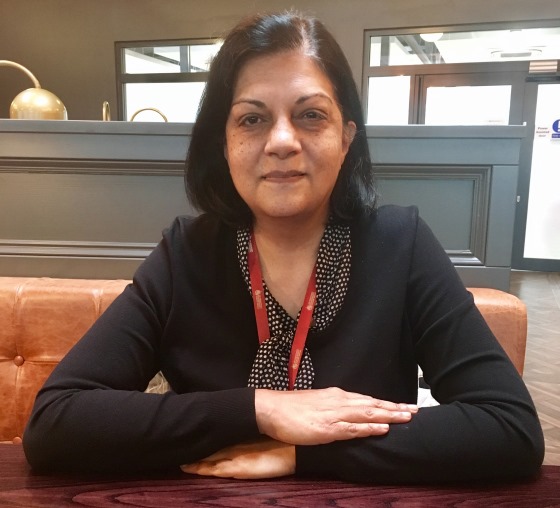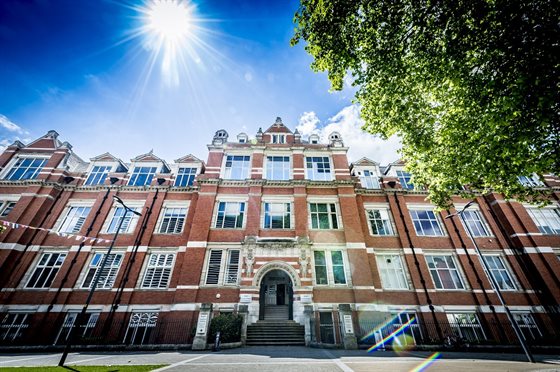Researchers at De Montfort University Leicester (DMU) are exploring how remote healthcare consultations could be improved for patients moving forward.
Last year, in the wake of the Covid-19 pandemic and within two weeks of the first UK lockdown, more than 50% of GP appointments were being conducted remotely and hospital consultations soon followed.
To understand patients’ preferences and determine ways that remote services could be improved, a team led by DMU’s Dr Neena Lakhani, Senior Lecturer in Clinical Pharmacy and Pharmacy Practice, will survey adults who have had a phone or video consultation in the last year.

Dr Neena Lakhani
“Prior to the pandemic, remote consultations were not common practice,” said Dr Lakhani. “But with so many people having to self-isolate or stay home to reduce the risk of the virus spreading, remote consultations have become increasingly prevalent in the last 12 months.”
By definition, remote consultations are when healthcare professionals provide counselling or advice to a patient via telephone, video link or other online platforms.
“Providing consultations virtually has allowed the continuity of care in challenging, unprecedented circumstances, without neglecting those that need consultations for medical reasons other than Covid,” said Dr Lakhani.
“The aim of this survey is to better understand how people feel about the shift to remote consultations. We want to know what they think works well and what could be improved.”
To assist with the survey, Dr Lakhani has appointed four Pharmacy students to collate, review and analyse the findings.

Leicester School of Pharmacy at DMU
“This project gives our students an opportunity to d help shape the way remote consultations are conducted,” added Dr Lakhani.
Reflecting on his own experiences throughout the pandemic, Dr Kehinde Sunmboye, a consultant rheumatologist, said the move to remote consultations has been beneficial for a lot of his outpatients, as it has reduced the need for them to visit hospital.
Dr Sunmboye said he has also able to see his patients much quicker using remote consultations. Prior to the Covid-19 pandemic, his waiting list could be up to 18 weeks for an appointment. By comparison, he is currently able to offer a telephone consultation for patients within just two weeks.
“At the onset of the pandemic we rapidly mobilised remote consultations to protect our patients and staff,” he explained. “Due to the intensity of the crisis, we haven’t had a lot of time to review the service or see what works best.
“But telephone and video consultations are probably here to stay, so it’s important that we listen to end users, learn from their experiences and make sure we are offering the best possible service.”
RELATED NEWS
DMU and Willows Health launch new research centre to improve patients' lives
Research shows coronavirus can survive on healthcare uniforms for three days
DMU research shows positive effect of street trees on mental health
While remote consultations might not suit everyone, Dr Sunmboye said he believes there are some patients it works very well for.
“Over the last year in my clinic, I can see there are patients who benefit from telephone or video calls rather than in-person consultations,” he said. “These are typically the patients who have been under my care for many years, are stable and know what medication they require.
“By doing the consultation remotely, not only could it save the patient time and money by eliminating their travel needs, it also reduces their risk of becoming unwell after a visit to hospital.
“Of course remote consultations are not failsafe and one of the pitfalls can be misinformation. Some patients might not be able to provide a full picture of their condition and this can make diagnosis and treatment more challenging.
“That is why we want to give patients a voice through this project. We want to know how they feel about receiving advice and healthcare remotely, so that we can make recommendations and improvements for the future.”
Anyone over the age of 18 who has had a remote consultation with a doctor (hospital or GP) between 15th March 2020 and 31st May 2021 is invited to take part in the survey and contribute to the research. All responses remain anonymous.
Posted on Monday 8 March 2021